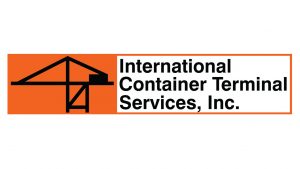When to ask applicants for documents

I read somewhere that you’re not in favor of asking job applicants for their scholastic records, birth certificate, marriage certificate, police clearance and other pre-employment documents during the first stage of the hiring process. What’s the reason for this? Help me understand. — Masked Rider.
Except for the scholastic records, how does the birth certificate, marriage certificate, police clearance, barangay clearance or court clearance help you determine an applicant’s capacity to perform the job? I’m not saying these other documents are unimportant. My point is that you should not clutter your mind and work desk with unnecessary papers.
Those are integrity documents to prove that a person is trustworthy, but they kick in only after you’ve chosen that person as your best candidate. Integrity papers must be distinguished from records like the diploma, transcript of records, government licensure certificate, or related major trade certificates issued by reputable organizations which prove a person’s capacity to do a job.
A hiring manager can simplify things with a copy of the applicant’s resume and transcript of records. You can even proceed without the transcript to focus on the most important part of the interview process — the asking of situational questions that give off indications that an applicant can do the job. Concentrate on what an applicant can do and ask for proof before asking for documents that can come later.
INTERVIEW QUESTIONSThe first thing you should do is to come up with a list of situational questions to help you determine the capacity of an applicant to do the job. Forget about the insignificant questions about the applicant’s strengths and weaknesses, which can be revealed via other means. At any rate, the internet offers many tips for answering the typical interview questions and your applicant can easily memorize them.
Instead, create a list of 30 questions designed to reveal a candidate’s capacity for handling specific work situations. Classify them into easy, moderate, and difficult, with 10 per category.
You can start with easy questions to help build rapport with the applicants: What kind of a person do you think would work best in this job? What would you want to accomplish within the first 90 days of doing this job? Can you identify the top three issues in this type of job? What has your major contribution been to your current employer?
The moderate questions can be along the lines of: What has been the most difficult task in your current job? How did you manage it? How about the easy ones? If the applicant has an MBA: How would you manage a boss without one? What do you like best about your current job?
The difficult questions could include: How would you handle a worker who leaked trade secrets to a competitor? How would you prevent these incidents from recurring? If I talk to your boss after this interview, what would he tell me about your performance?
STANDARD QUESTIONSDevelop a pass-fail scoring system for the interview responses. Eliminate the moderate grades to preclude the grading of some candidates as “average.” Such a grading scale could assign 1 to represent “fail,” 2 “below average,” 3 “above average” and 4 “pass.”
Over 30 interview questions, the maximum score should be 120 points. Put together your shortlist of three candidates by score.
Inform the number one candidate that he’s on the shortlist, without telling him his rank. E-mail that applicant with a request to undergo a pre-employment medical check-up (if applicable) and a checklist of all the other documents you require, such as the birth certificate, marriage certificate, and identification card. Be sure to comply with the data privacy law.
Regarding integrity documents, you can ask for a clearance from the National Bureau of Investigation in lieu of the others, such as the police, barangay and court clearances.
If the number one applicant fails the medical exam or can’t submit the integrity documents by a reasonable deadline (say within three weeks), then notify the next candidate on the shortlist.
Last, make the interview process part of a consensual decision-making system with the help of your department colleagues or boss depending on the nature of the job to be filled. This way, even if you give a top score to one candidate, the other interviewers could temper whatever positive or negative bias you have.
Calling for managerial participants in our “Non-Competitive Benchmarking on Managing Attrition” on May 26, 2023. Understand what you’re missing in the process of reducing employee turnover. Chat with Rey Elbo on Facebook, LinkedIn, Twitter or e-mail elbonomics@gmail.com or via https://reyelbo.com




